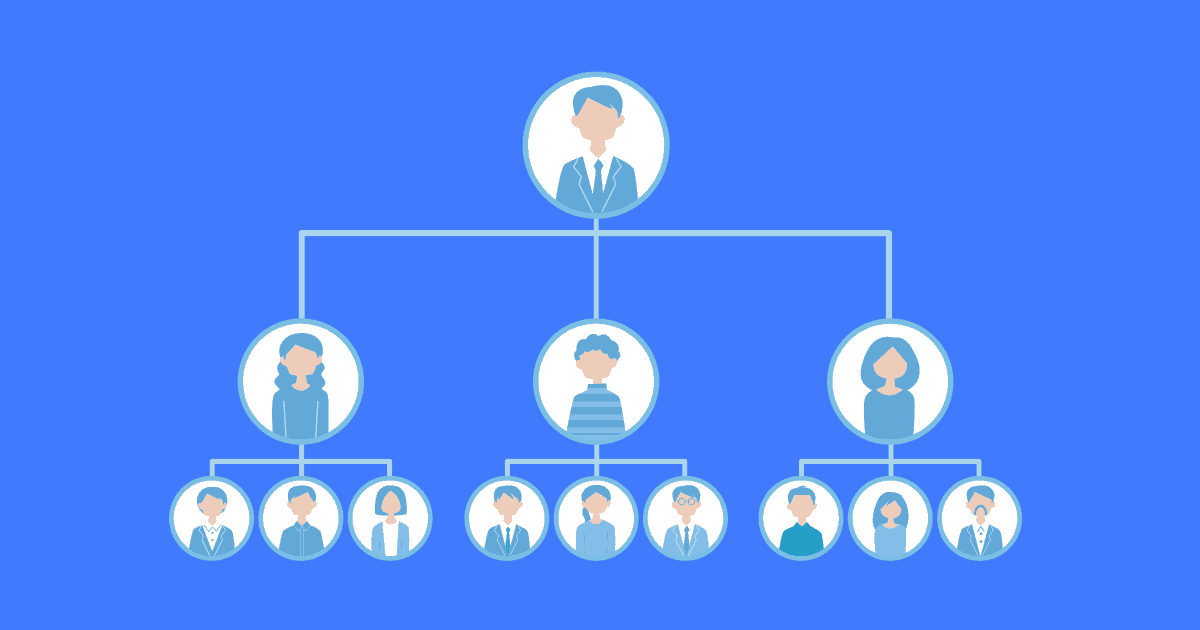In the complex world of business, the understanding of organizational behavior is crucial. But what is organizational behavior exactly? It is an interdisciplinary field that explores the behavior of individuals, groups, and structures within an organization. Its primary goal is to apply this knowledge to improve an organization's effectiveness and efficiency.
Table of Contents
- What is Organizational Behavior?
- The Importance of Organizational Behavior
- 4 Key Components of Organizational Behavior
- Recruitment and Selection
- Wrapping It Up
Let’s dive into the core aspects of organizational behavior and its significance in the modern workplace.
What is Organizational Behavior?
Organizational behavior is a multidisciplinary field that draws from psychology, sociology, anthropology, and management science. Its primary focus is understanding human behavior in organizational settings, the organization itself, and the interaction between the two.

This field of study investigates the impact individuals, groups, and structures have on organizational behavior. The purpose is to predict such behaviors and to apply this knowledge to improving an organization's effectiveness.
The Importance of Organizational Behavior
The study of organizational behavior is crucial in the modern business environment. It contributes to the management and health of any organization, offering valuable insights and tools for dealing with human aspects of the workplace, ultimately leading to enhanced organizational effectiveness, efficiency, and sustainability.
- Understanding of Workforce Dynamics: Organizational behavior provides deep insights into how people behave within an organization. Understanding these dynamics helps managers and leaders anticipate and manage the challenges that arise from individual and group behaviors.
- Effective Management and Leadership: Understanding organizational behavior equips leaders and managers with the skills to motivate employees, manage team dynamics, and resolve conflicts. This is particularly important in diverse work environments where various cultures and personalities interact.
- Improved Employee Well-being and Satisfaction: Organizational behavior offers insights that help organizations understand what motivates employees, what makes them satisfied, and how they can be more productive. Engaged employees are typically more productive and committed to their organization.
- Facilitates Change Management: In today’s fast-paced business world, change is constant. OB provides frameworks for managing organizational change effectively. Understanding how people react to change and the best ways to communicate change are crucial for minimizing resistance and ensuring a smooth transition.
- Promotes a Better Organizational Culture: Organizational culture significantly impacts employee behavior and organizational performance. A strong culture aligns with the organization's values and objectives and promotes a sense of identity and belonging among employees.
- Supports Diversity and Inclusivity: With workplaces becoming increasingly diverse, understanding organizational behavior helps organizations value and integrate diverse perspectives. This not only promotes inclusivity but also drives innovation and creativity.
- Strategic Decision Making: Organizational behavior principles aid in better strategic decision-making by taking into account the human element in all organizational strategies. This ensures that decisions are more likely to be accepted and successfully implemented.
4 Key Components of Organizational Behavior
Organizational behavior is a complex and multifaceted field that can be broadly divided into four key components. Each of these components plays a critical role in understanding and improving the functioning of organizations.
Individual Behavior
This component focuses on the behavior, attitudes, and performance of individual employees within an organization. This aspect is crucial because every member of an organization brings their unique personality, experiences, and perspectives to the workplace, influencing how they interact with others, their job performance, and their overall contribution to the organization.

Key areas of interest include:
- Personality: How an individual's unique traits and characteristics influence their behavior and interactions at work.
- Perception: How individuals interpret and make sense of their organizational environment.
- Motivation: What drives individuals to act in certain ways and how to enhance their motivation to improve performance.
- Learning and Development: The processes through which employees acquire or modify skills, knowledge, and behaviors.
- Attitudes: These are the evaluations employees hold about various aspects of their work environment, such as their job, their colleagues, or the organization itself.
- Decision Making and Problem Solving: This includes understanding different decision-making styles, the use of judgment, and the application of critical thinking skills.
Group Behavior
Group behavior in organizational settings refers to the actions, interactions, and dynamics that occur among individuals when they come together in groups or teams. Understanding group behavior is crucial for organizations because it can significantly impact overall performance, employee satisfaction, and the achievement of organizational goals.
This includes the study of:
- Team Dynamics: How individuals interact, collaborate, and achieve goals within a team.
- Communication Patterns: The flow of information within groups, including barriers to effective communication.
- Leadership and Management Styles: How different leadership and management approaches impact group behavior and performance.
- Conflict and Negotiation: The dynamics of conflict within groups and strategies for negotiation and conflict resolution.
- Group Norms and Conformity: Groups develop their own norms, which are the shared standards of behavior that members are expected to follow.
- Power and Politics in Groups: Power dynamics within a group, such as who holds the authority and how it is exercised, can impact group behavior.
Organizational Structure and Culture
These are two fundamental aspects of organizational behavior that significantly influence how a company operates and performs. Both play a crucial role in shaping the behavior and attitudes of employees, and understanding them is essential for effective management and leadership.

Key elements of group behavior include:
- Organizational Design and Structure: How the organization’s structure affects its operations and employee behavior.
- Organizational Culture: The shared values, beliefs, and norms that shape the social environment and behavior within an organization.
- Power and Politics: The role of power dynamics and political behavior in shaping organizational life.
Organizational Processes and Change Management
This area focuses on the dynamics of change within an organization and the various processes that support or drive these changes. This area is essential for ensuring that organizations adapt successfully to both internal and external challenges and opportunities.
Let's delve into the key topics in this area:
- Change Management: Change management deals with strategies and processes for managing organizational change effectively.
- Decision-Making Processes: How decisions are made within organizations and the factors that influence these processes.
- Innovation and Creativity: Fostering an environment that encourages innovation and creative problem-solving.
Organizational Behavior's Influence on HR Practices
Organizational behavior influences various aspects of HR activities, from recruitment and selection to training, development, and performance management. Here's a detailed explanation of how organizational behavior shapes HR practices:
Recruitment and Selection
Organizational behavior emphasizes the importance of matching an individual's personality and values with the job and organizational culture. This understanding helps HR professionals create more effective job descriptions, select appropriate recruitment channels, and design interview processes that assess not just skills but also cultural and job fit.

Moreover, insights from organizational behavior studies about the benefits of a diverse workforce guide HR in implementing inclusive recruitment strategies, aiming to build a workforce that brings a variety of perspectives and problem-solving approaches.
Training and Development
Organizational behavior theories, such as learning styles and adult learning principles, inform the design of training programs. HR uses these insights to create training that is not only skill-based but also focuses on improving communication, teamwork, and leadership.
Organizational behavior also allows the understanding of employees' career aspirations and motivational drivers, a key area in OB, which enables HR to tailor individual development plans and succession planning more effectively.
Performance Management
Organizational behavior provides various theories of motivation (e.g., Maslow's hierarchy of needs, Herzberg's two-factor theory) that HR can use to design performance management systems. These systems aim to motivate employees through recognition, rewards, and career advancement opportunities.
Moreover, organizational behavior stresses the importance of effective feedback. HR incorporates this by developing performance appraisal systems that are constructive, regular, and aligned with individual and organizational goals.
Employee Relations
Organizational behavior offers insights into conflict management and resolution strategies. HR applies these strategies to handle workplace disputes, ensuring a harmonious work environment.
Change Management
Organizational behavior provides frameworks for understanding how employees react to change. HR uses this knowledge to plan change initiatives, ensuring clear communication, training, and support to employees to ease transitions and reduce resistance.
Wrapping It Up!
The synergy between organizational behavior and human resources is essential for the holistic development and management of an organization's workforce. While organizational behavior provides the theoretical foundation for understanding employee behavior, human resources translates these insights into practical strategies and practices.
Understanding what is organizational behavior and its importance is critical for any organization seeking to improve workplace efficiency, enhance employee satisfaction, and foster a positive and productive work environment. This knowledge allows leaders and managers to effectively navigate the complexities of human interactions and behaviors within the organization.



